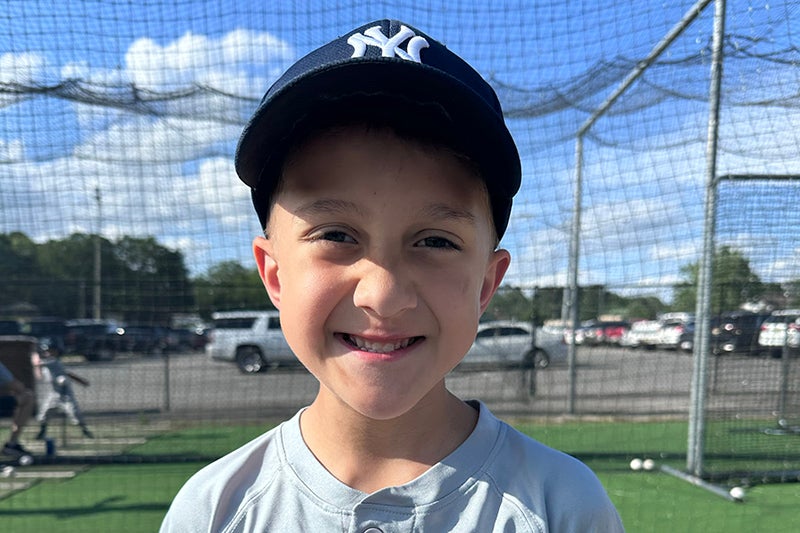Juvenile Idiopathic Arthritis
Whitman’s medical journey began around age 2 when he started experiencing joint pain. “Sometimes when he’d get out of bed, he’d immediately complain that he hurt,” explains his mother, Rochelle. “We and the pediatrician thought it was just growing pains. We didn’t think much of it.”
But after a move from South Georgia to Decatur, Ala., Whitman became frequently ill. Within just two months, he experienced strep throat twice, the flu, and a viral eye infection. His joint pain became more frequent and began to interfere with everyday life. “He was in the most pain we’ve ever seen,” Rochelle says. “Even his kindergarten teacher reached out, saying he was hurting at school and could barely get off the floor.”
Whitman’s bout of illnesses and difficulty walking prompted another pediatrician visit. This time, he was sent on to an orthopedist who was concerned he had juvenile idiopathic arthritis (JIA). The most common type of arthritis in children under the age of 16, JIA is an autoimmune inflammatory joint disease that causes joint pain, swelling, and stiffness. “When the doctor first shared that he suspected it to be JIA, we couldn’t believe it,” Rochelle adds.
The orthopedist quickly referred Whitman to the pediatric rheumatologists at Children’s of Alabama, who agreed with the diagnosis of JIA. “As soon as we walked through their doors in Birmingham for his first appointment, they already had a treatment plan ready for him,” Rochelle shares. “They knew exactly what he needed.”
Doctors at Children’s soon started Whitman on his treatment plan, which included two different medications given via injection. “We were really fortunate in that he responded to the treatment well and with minimal side effects,” Rochelle says. “We started seeing significant improvement in his joints pretty quickly.”
Adjusting to life with weekly injections at just 6 years old, however, was somewhat of a challenge for Whitman and his family. “It’s rough having to force your young child to get a shot,” Rochelle explains. “Thankfully, Children’s was there to help with that, too.” Whitman began routine visits to Children’s Harbor Family Center, located on the Children’s of Alabama campus, to talk through the challenge with a counselor. In fact, the whole family, including his father, Brian, and big sister, Charleston, visited with him to help work through the issue. “Having the counselor to talk with helped so much, not just for Whitman but all of us,” Rochelle adds. “He now handles all of the injections like a pro.”
Whitman takes full advantage of what the treatment now allows him to do, like play baseball and advance in karate. After struggling with play before diagnosis, he now thrives. “He’s a totally different kid now,” Rochelle says. “Looking at him, you’d never even know he has juvenile idiopathic arthritis. We are so fortunate to have gotten him to Children’s of Alabama. Everyone there is amazing, and it’s obvious that they care so much about the patients and their families. The child in treatment is obviously the most important piece, but they get it’s more than that. They understand how a diagnosis affects an entire family, and they support us all.”














